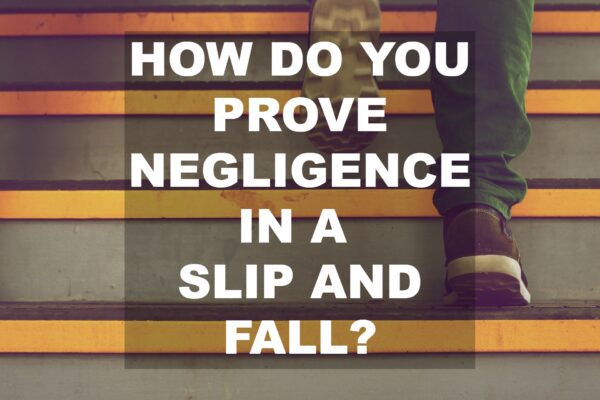
A slip and fall injury can be serious, especially this time of year. As the seasons change, and fall turns to winter, the chance for a slip and fall injury increases with every storm. The autumn rains can mask slippery fallen leaves on any sidewalk, and snow can mask a patch of ice on any doorstep. If you are seriously hurt as a result of a slip and fall injury on another’s property due to owner negligence, you should consult with a slip and fall lawyer. You very well may be entitled to money damages to compensate for lost wages, to cover medical bills, and more.
Slip and fall accidents are common enough and can happen anytime on any property, commercial or residential. To prove it was the fault of a property owner, or in the case of a commercial property, the person who is in charge of maintaining it, then it must be proven that the owner failed to act as a reasonable person would have acted under similar circumstances to prevent the accident from occurring. Was the property cleared of snow, ice, and wet spots? Were the uneven sidewalks or any walking surfaces on the property overdue for repair? Was a caution sign posted before the wet or polished floors? Were electrical cords left across a busy aisle or passageway? Was the lighting poor? Was the handrail on the stairwell loose? Was the parking lot poorly lit and filled with potholes?
What is a Slip and Fall Accident?
An injury from a slip and fall accident is a type of a personal injury case when an injury occurs from a slip, trip or fall on someone else’s property. These injuries are categorized under premises liability claims. If you are injured on someone else’s premises, i.e., their property, then that owner or the person who is maintaining it, can be held legally responsible. When it comes to determining fault, it’s important to understand what is meant by a property owner and the person or entity that maintains a property. For instance, when a small business opens, most properties are leased, not owned. It is the business owner’s responsibility to prevent slip and fall accidents from happening on the property, not the actual property owner(s).
Who is Responsible for a Slip and Fall Injury?
As in most cases of premises liability, proving who is at fault for a slip and fall injury is determined on a case by case basis. To prove owner negligence, you, the plaintiff will have to prove that you didn’t somehow cause the accident. In slip and fall cases, the property owner, or more likely the commercial or residential owner’s insurance carrier’s legal team will argue that the accident was partially or completely the plaintiff’s fault. They will make the argument under a concept known as “comparative fault,” which, depending on where the accident happened and in what state, may prevent a plaintiff from receiving full or any compensation for his or her slip and fall injury.
Contributory and Comparative Negligence in a Slip and Fall Case
The two primary negligence systems in the U.S are known as contributory negligence and comparative negligence. The concept of contributory negligence can bar the plaintiff from receiving any damages if he or she is partially at fault for the accident. On the other hand, comparative negligence allows the plaintiff to recover from a defendant even if partially at fault, but will only be compensated for the percentage of the defendant’s fault. Fortunately, Maine is under a comparative negligence system that allows the plaintiff to recover compensation as long as he or she is 49% or less at fault.
There is no exact way to determine fault. One thing is certain—the condition of the premises at the time of the accident will be put under close scrutiny. The property or business owner must have acted accordingly to prevent their customers or visitors from slipping or tripping when entering the property. In most instances, the case will be determined by proving that there was a dangerous condition that caused the accident and that the owner, agent or possessor of the property knew that the dangerous condition could present a problem, or more precisely, an unreasonable and unanticipated risk to anyone who entered the property. If people are not aware of any dangers present they cannot be held responsible.
Proving You Didn’t Cause the Accident Yourself
To prove owner negligence it must be shown that the owner not only created the condition, but knew of the condition, or it had existed for such a length of time that it should have been discovered and fixed by the owner. To be liable, it must be foreseeable that an owner negligently failed to correct the dangerous condition at issue and that the slip and fall injury was not a result of the plaintiff’s carelessness.
If You or Someone You Know Has Been Hurt, Contact a Maine Personal Injury Lawyer
If you have been hurt on another’s property, and you believe it was because of the property owner’s negligence contact Maine’s slip and fall attorneys, Hardy, Wolf & Downing. For years we have won substantial settlements and verdicts for victims of property owner negligence. We will help you in your fight for justice and receive the money damages you are entitled to.

